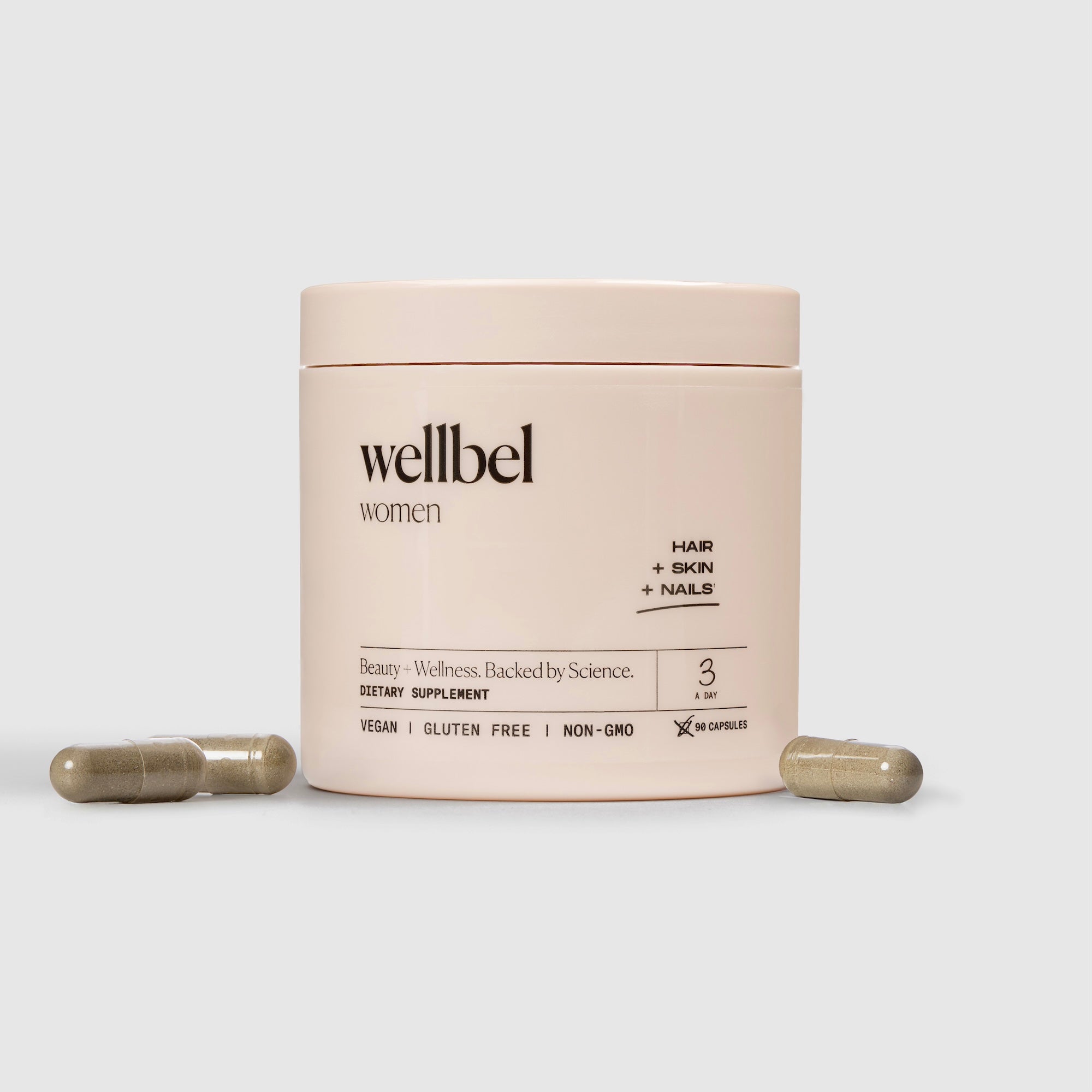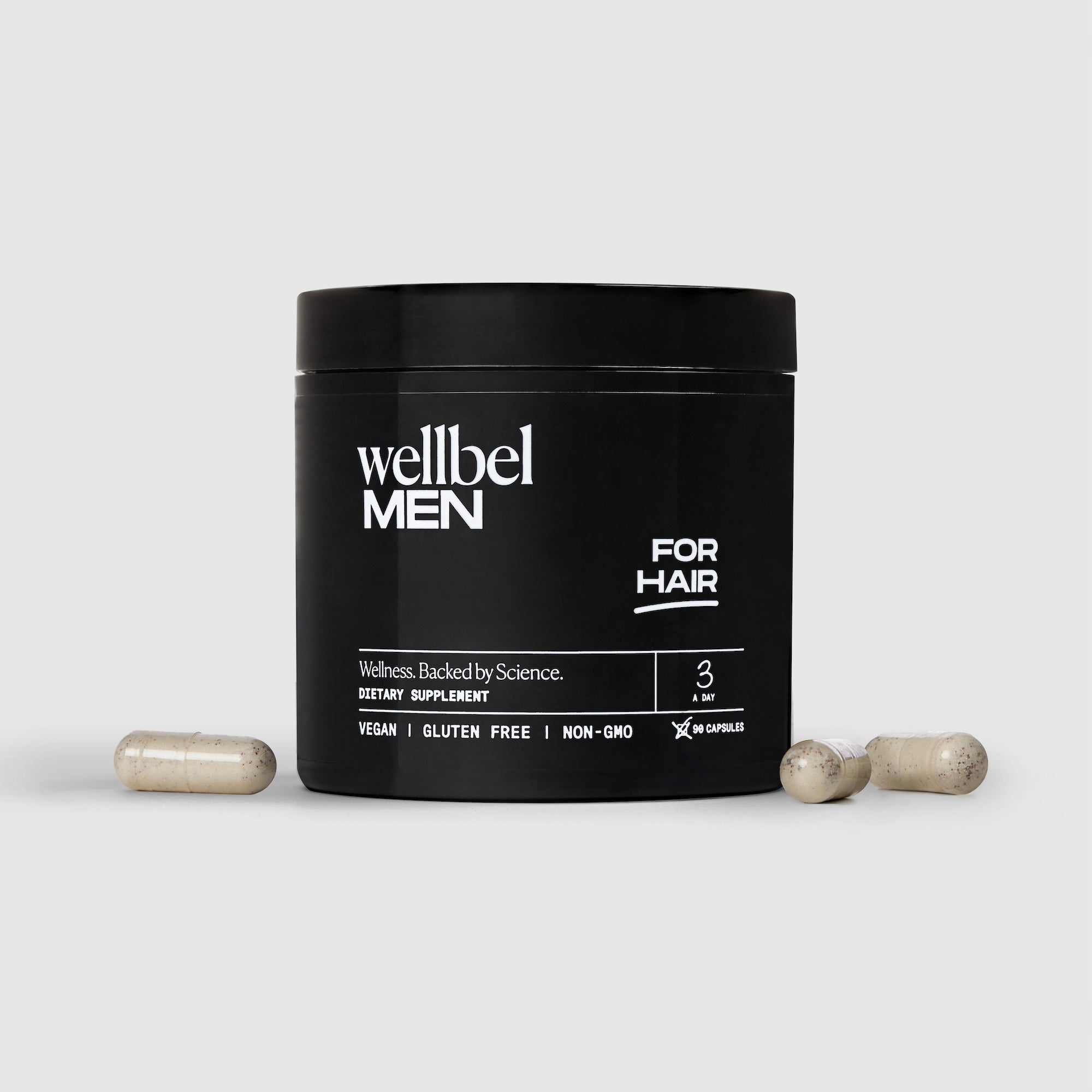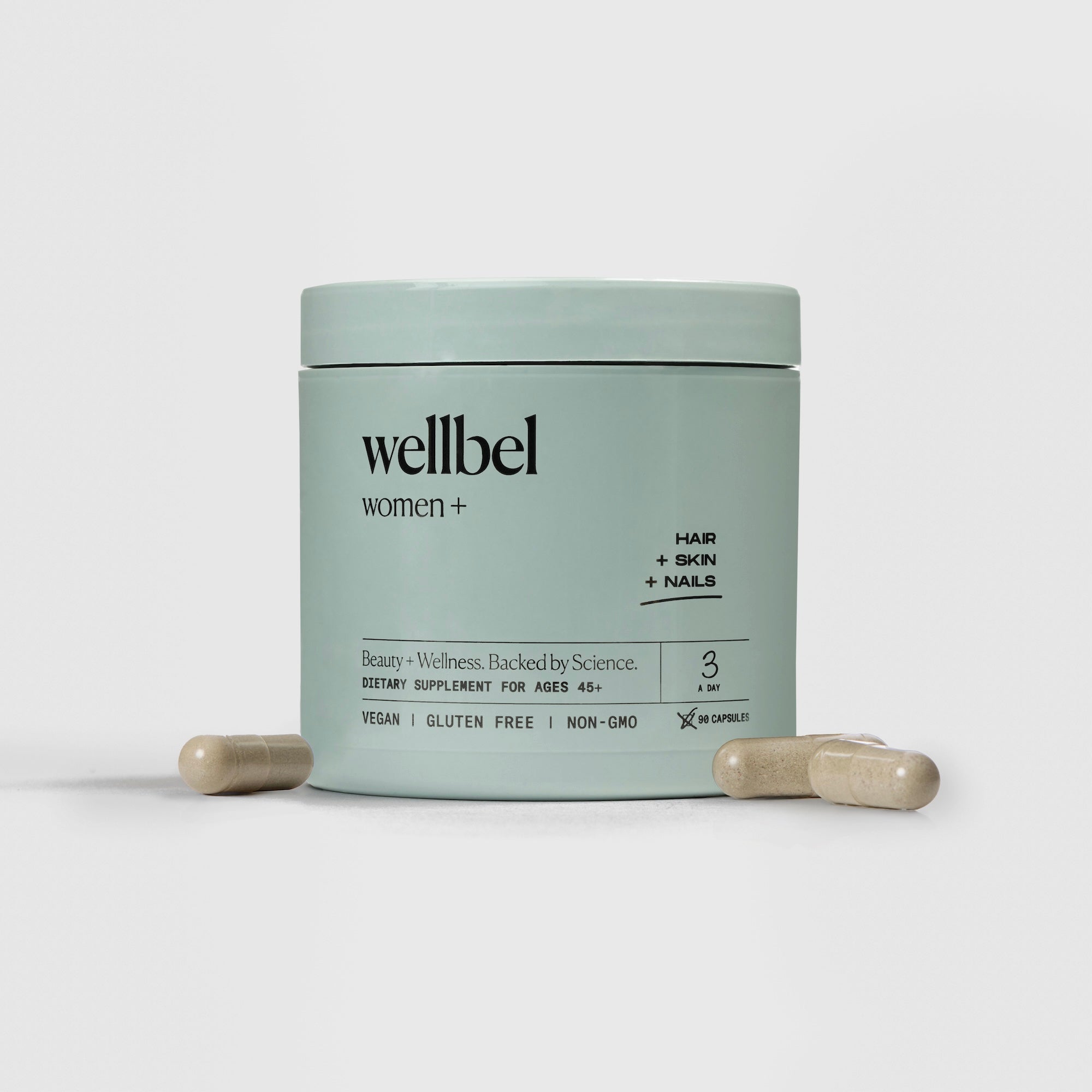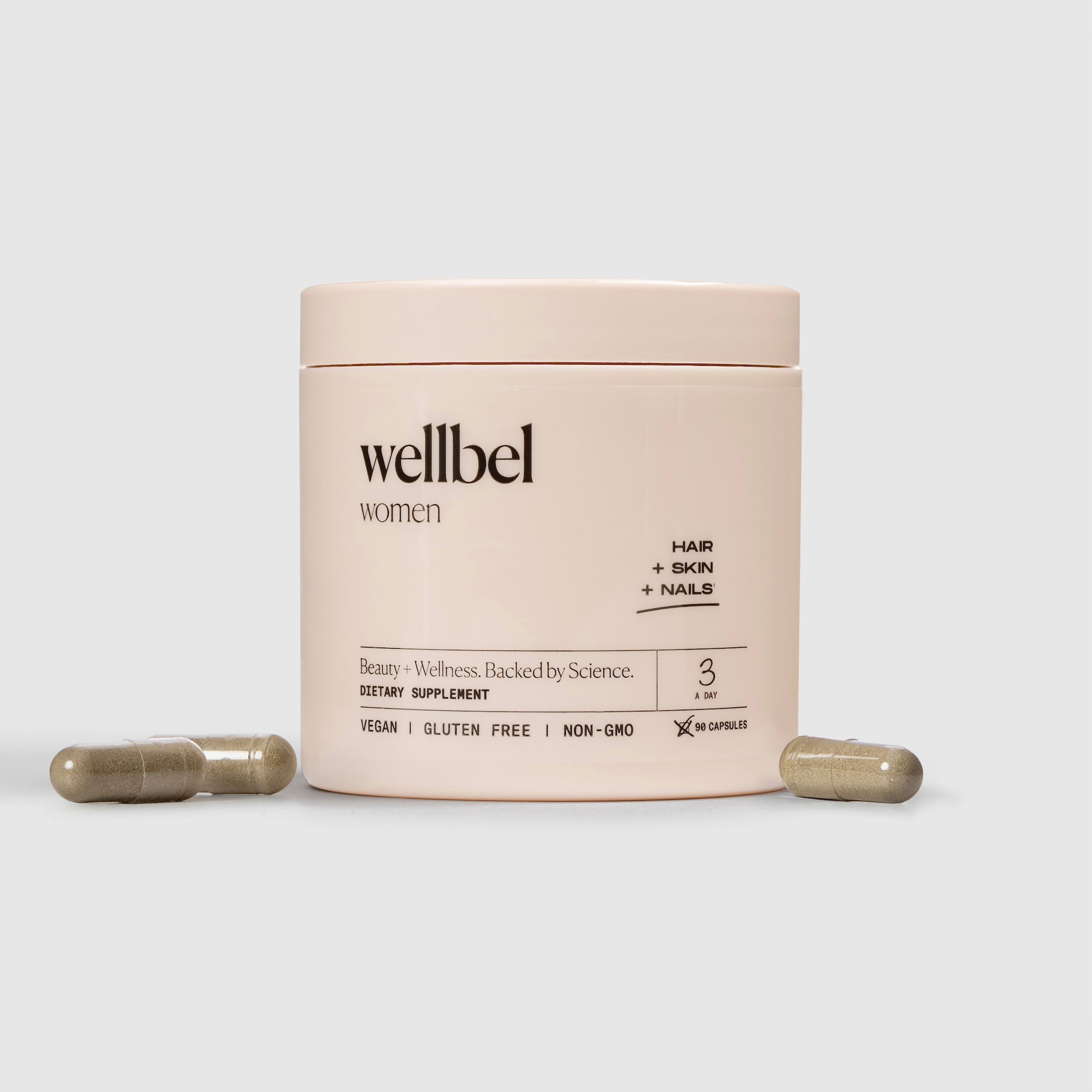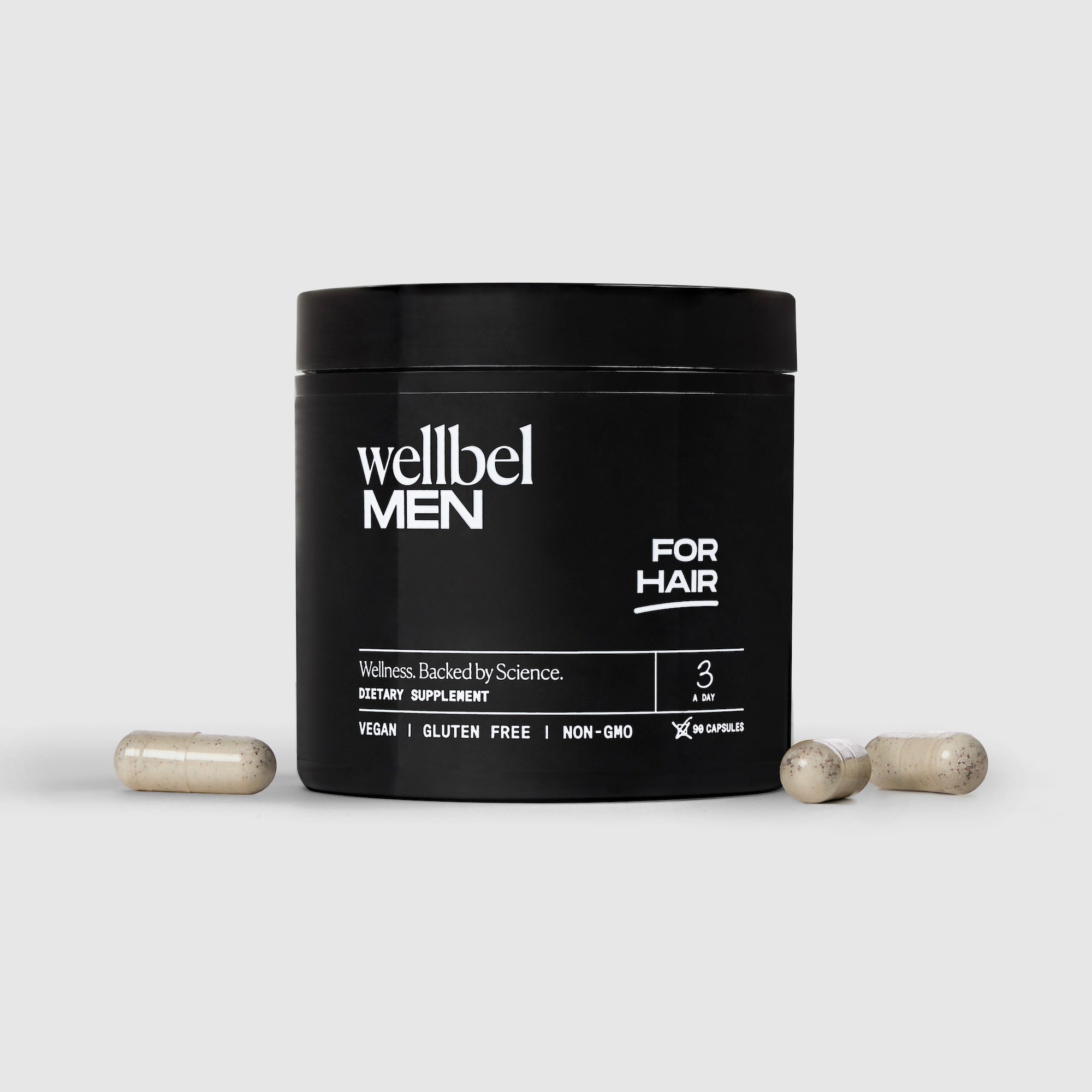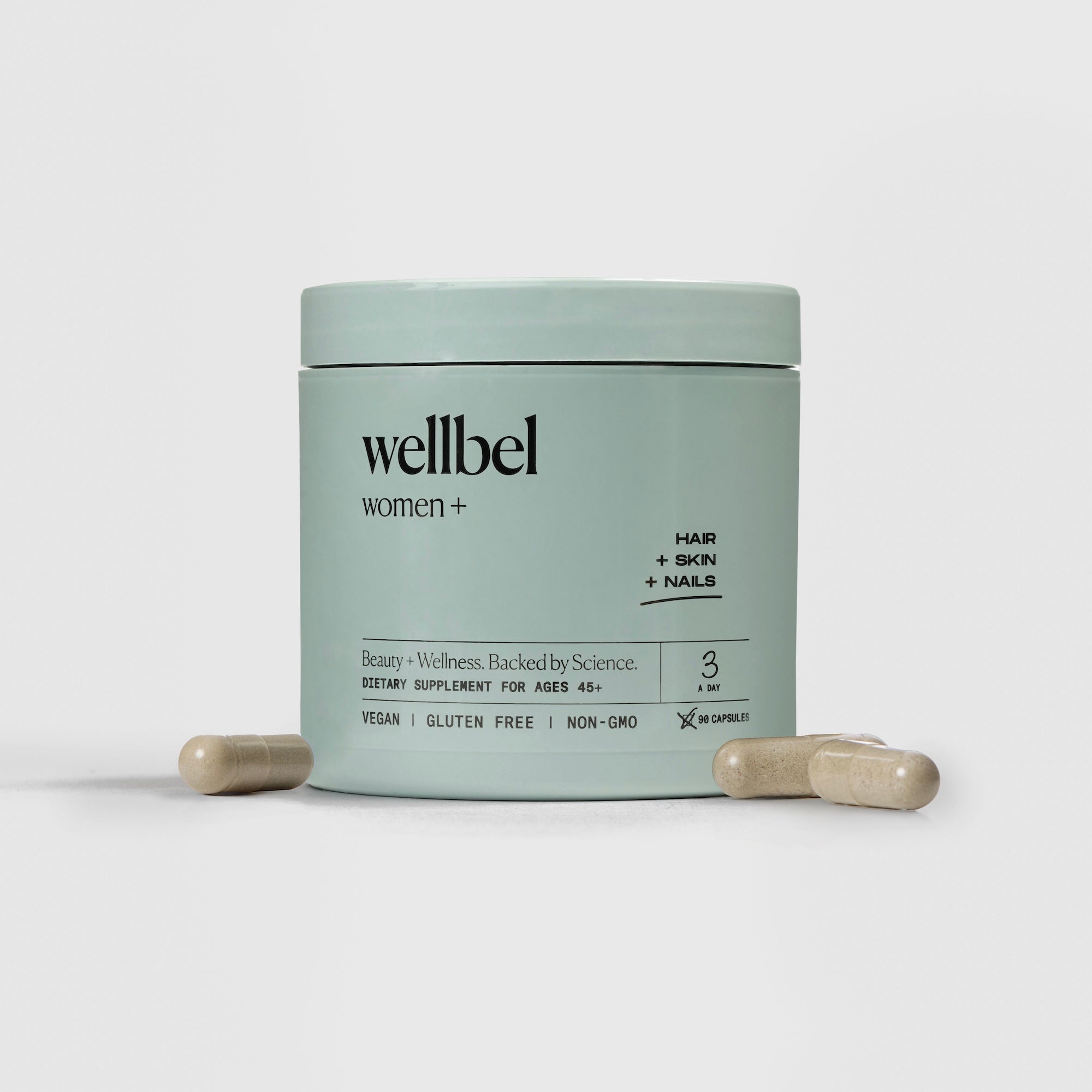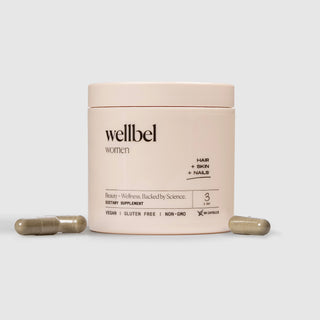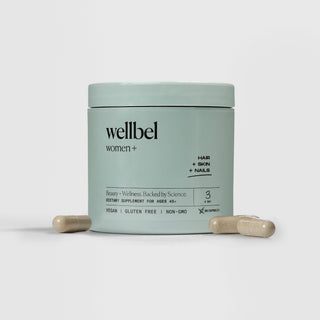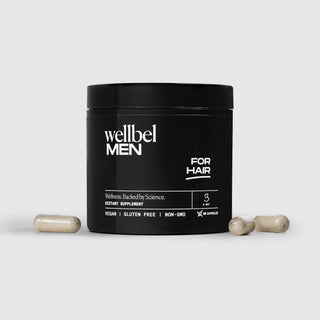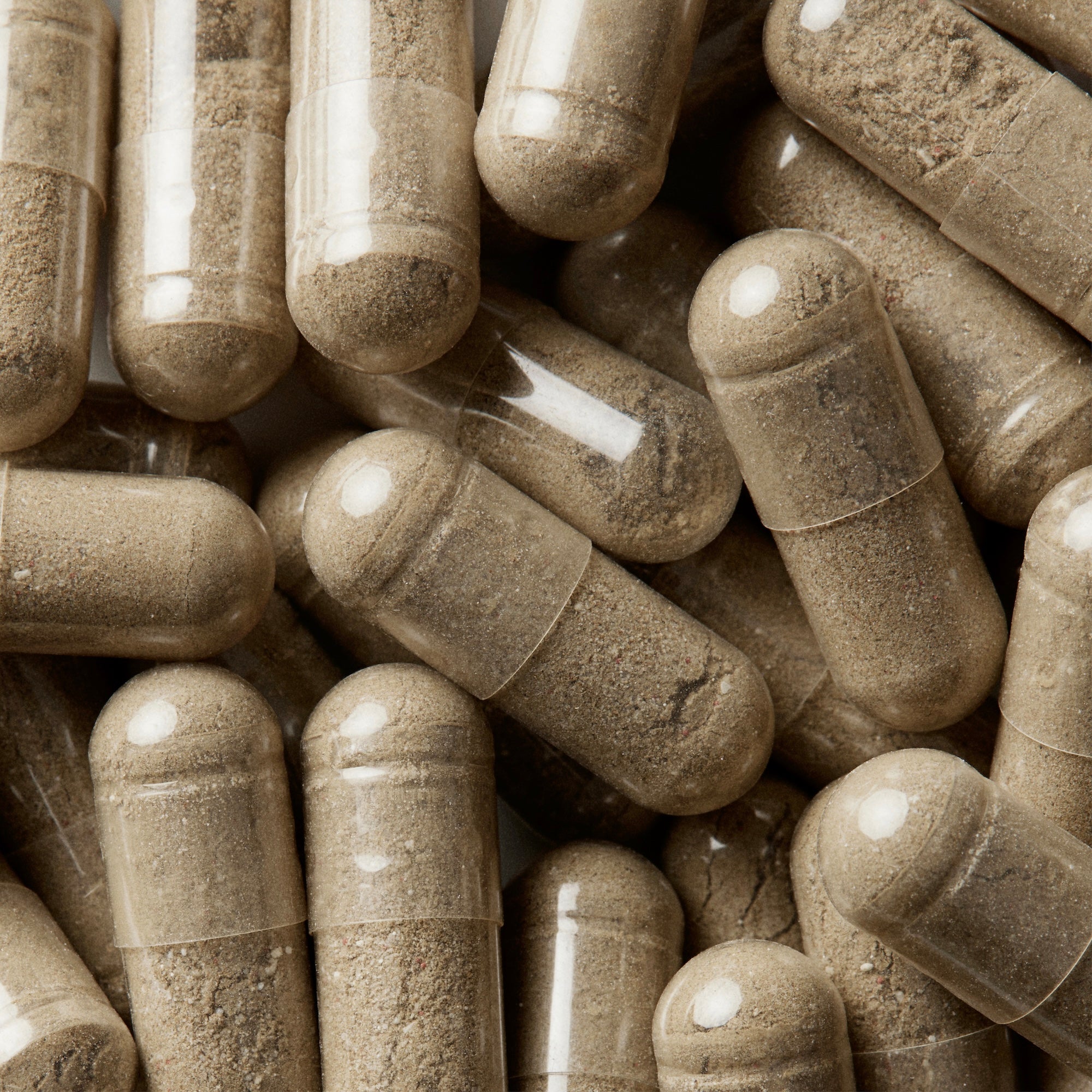From an early age, we’re taught to eat lots of healthy fruits and vegetables every day to ensure we reach our recommended intake of vitamins and minerals. And while that certainly sounds like it would be good for our bodies, have you ever stopped to think about what these vitamins and minerals actually do for our health and wellness?
You don’t need to be an organic biologist to understand vitamins. In fact, we’re committed to demystifying information around nutritional health so you know exactly how powerful these compounds are.
Today, we’ll focus on vitamin D. Often called the sunshine vitamin, your body’s vitamin D status plays a huge role in the health of your overall body, but particularly when it comes to the wellness and appearance of your skin and hair — our area of expertise.
What Can Vitamin D Do For Women’s Health?
Let’s begin with the facts. What are the health benefits vitamin D offers?
It Supports Bone Health
One of the most important benefits of vitamin D, particularly for women, is what it does for bone tissue. Vitamin D helps the body with phosphate and calcium absorption, both of which support stronger bones and better bone mineral density.
Maintaining healthy bones, especially as we age, is essential. Vitamin D helps reduce your risk of bone fractures and also helps protect us from developing osteoporosis.
It Fights Inflammation
But vitamin D doesn’t just help improve bone structure. It also is pretty awesome when it comes to helping your body fight inflammation. Your immune system plays a vital role in defending your body against harmful invaders, and it turns out that vitamin D is a superhero when it comes to supporting your immune system.
When you have sufficient vitamin D intake, it helps regulate your immune system's response, which means it can keep inflammation in check. Vitamin D metabolism in your body influences the production of anti-inflammatory molecules, which can help ease things like bone pain and even lead to fewer respiratory infections.
What’s more, stronger immune function linked with adequate vitamin D intake will help reduce irritation on your scalp, inflammation-related hair loss, and skin flare ups. In short,vitamin D is a well-rounded, hardworking nutrient.
It Promotes Tissue Health and Rejuvenation
We know vitamin D can do so much to support women’s health internally and the external effects are clear: vitamin D helps support stronger, healthier hair, and smoother, more resilient skin. It plays a crucial role in promoting tissue health and rejuvenation in the human body.
When we’re exposed to sunlight, vitamin D production gives us a boost of vitamin D3, which is the active form of the nutrient. Now, vitamin D may not be able to turn back the clock completely, but it certainly helps support tissue health and rejuvenation. It does this by regulating cell growth and development, promoting wound healing, and even enhancing the production of proteins that are essential for maintaining healthy tissues.
On the flip side, low vitamin D levels, or vitamin D insufficiency, can have a significant impact on skin and hair health. Research suggests that insufficient vitamin D levels may contribute to an increased risk of certain skin conditions like psoriasis, eczema, and acne, hair loss or thinning. There is also growing evidence that vitamin D deficiencies may result in an increased risk factor for conditions like breast cancer, multiple sclerosis, high blood pressure, cardiovascular disease, and a host of autoimmune diseases.
From the appearance of your skin and hair, to the wellness of your body, there are so many cases where it’s clear that strong vitamin D absorption is essential.
What Are Some Strong Sources of Vitamin D?
You’ve probably heard before about seasonal vitamin D deficiency. Because UV rays from the sun are a major source of vitamin D absorption, people often experience a vitamin D deficiency during the winter months, when they’re less likely to be outside and the days are shorter.
Sun Exposure
It’s true, vitamin D is the sunshine vitamin! Sun exposure increases vitamin d synthesis and by effect, the body produces vitamin D3. That doesn’t necessarily mean you should spend all day in the sunlight. While the sun is a natural and effective source of vitamin D, it's important to strike a balance to prevent overexposure and reduce the risk of skin cancer. Our skin contains vitamin D receptors that help regulate the synthesis and utilization of this nutrient, allowing us to maintain optimal levels. So, make sure to soak up some sunshine responsibly — with lots of SPF — to support your vitamin D synthesis and overall well-being.
A Balanced Diet
While sunlight is a primary source, certain food items can contribute to your vitamin D intake as well. A balanced diet can be a reliable source of vitamin D, as it's a fat-soluble vitamin. Including foods such as orange juice fortified with vitamin D, fatty fish like salmon and mackerel, and fish liver oils in your diet can provide significant amounts of this essential nutrient. Remember that vitamin D is better absorbed when consumed with dietary fat, so incorporating healthy fats alongside vitamin D-rich foods can enhance its absorption and support your overall well-being.
Dietary Supplements
For many people, deficiencies in vitamin D, particularly when it's seasonal, are commonly remedied with a vitamin D supplement. Vitamin D supplements are a convenient and effective way to ensure adequate vitamin D levels. It’s no surprise that supplemental vitamin D is so often recommended considering the prevalence of vitamin D deficiency. That said, it’s good to remember that this vitamin is only one piece of the puzzle when it comes to overall health. If you focus too hard on getting enough vitamin D, you might decrease vitamin absorption of other key vitamins like A, E, and C.
To that end, we recommend a daily vitamin that includes vitamin D, in addition to other hardworking and helpful vitamins, dosed within safe and recommended dietary reference intakes. With vitamin D supplements, it’s easy to take too much vitamin D which can be quite harmful, leading to muscle weakness, confusion and dehydration, among other symptoms.
That’s certainly a guiding principle behind Wellbel Women, our daily vitamin that supports hair and skin health, ensuring more vitamin D intake and therefore higher vitamin D status, but within safe limits. It also includes a number of other key, plant-based vitamins and minerals, so you can hit all your birds with one stone.
Get Enough Vitamin D to Support Your Wellness
You might be wondering how much vitamin D you should be getting every day. The truth is the recommendation is far smaller than what you often see in vitamin D supplements. Most adults only need 15 mcg a day. So whether you’re taking vitamin D supplements, incorporating it into a daily supplement like Wellbel, or committing to getting some outdoor time every day, make sure you make vitamin D a priority.
From hair and skin health to cancer prevention, vitamin D is essential to our wellness.
Sources
What Are The Benefits Of Vitamin D And How Much Do You Really Need Per Day? | Women’s Health

